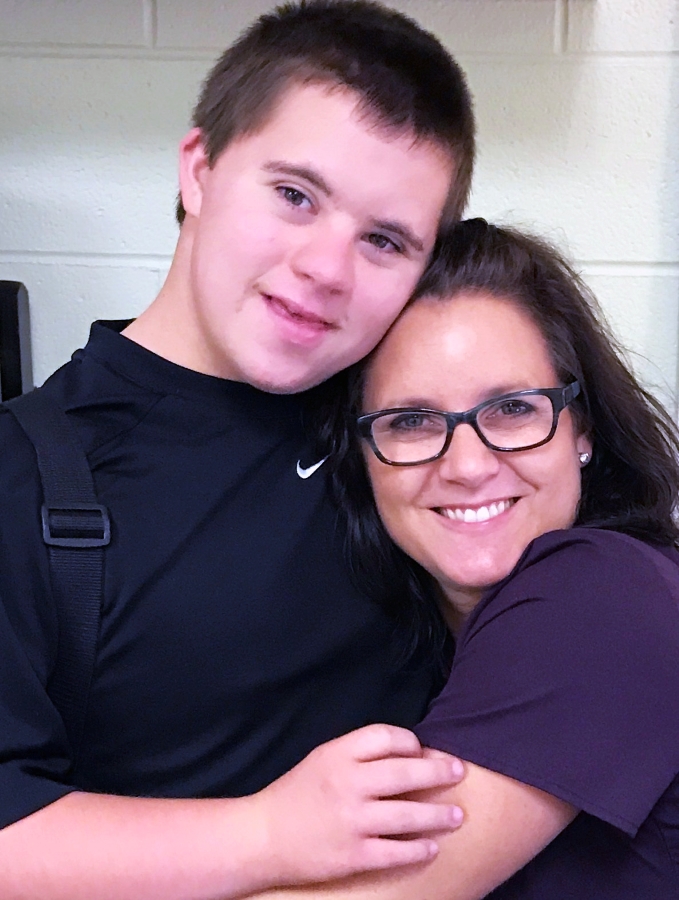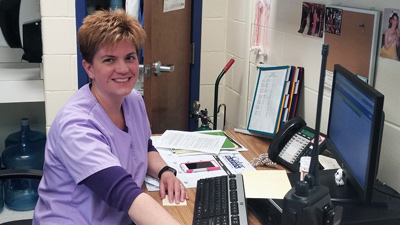When should I keep my child home from school? 
Your child should stay home if he or she:
- Has a fever of 100.4° or higher before taking a fever reducing medication
- Has active vomiting and diarrhea
- Has symptoms that prevent him or her from participating in school and appears to be ill, such as
- Excessive tiredness or lack of appetite
- Persistent or productive cough
- Headache, body aches, earache
- Severe sore throat
- Has an unknown rash or possible contagious condition
- Has eye irritation with crusting and drainage
- Has been diagnosed with conjunctivitis “pink eye” or strep throat and has been on antibiotics for less than 24 hours
If your child complains of being sick in the morning, but you do not see any symptoms, please use your best judgment. If your child comes to school, please do not tell him/her, “If you feel bad, go to the nurse.” Your child may think that means he/she should, right off the bus, go to the clinic, first thing in the morning. It is better to say, “Go to school, go to class, and try to make it today.” Tell your child you will check on him/her later in the day. If your child is really feeling poorly, he/she will go to the clinic during the day.
What is the policy for sending children home from school?
We will send students home if they have a fever of 100.4° or higher. We will also send home students who are complaining of nausea, vomiting, stomachache, headache, or sore throat and who appear to be ill with or without a fever (sleeping, not talking or playing with others in the clinic). We will send students home if they have a suspected contagious condition such as conjunctivitis (pink eye) with drainage or if we identify a live infestation of head lice.
When will children not be sent home from school?
We will not send students home in the following cases:
- Complaining of nausea, vomiting, stomachache, headache, or sore throat but do not appear ill and when resting in the clinic are playful, talkative, and active
- Experiencing eye irritation but do not have drainage
- Students who have been treated for lice but have some nits left

When my child has been sick, when can he/she return to school?
Once symptoms have stopped and children are fever free (temperature less than 100.4° without fever-reducing medications) for 24 hours, they may return to school. If your child had a fever the evening/night before, please do not send him or her back to school in the morning, even if the temperature is down first thing in the morning. Often, temperatures are lowest in the morning, and fevers return in the afternoon.
When will the school nursing staff call me?
The school nurse will call you anytime there is a concern about your child’s health and they need your input or to inform you of the situation. The nurse will call you if it’s determined that your child needs a referral to your healthcare provider or to follow up on an illness or injury. Other reasons that the school nurse may call you could include the following:
- The school nurse will call you if your child is ill, has live head lice, or has identified a medical issue that you are unaware of. For instance, if a student comes to the clinic with an unidentified rash that has not been noted before, and the student reports that his parent has not seen it, the nurse will give you a call.
- Parents will also receive a call from the nurse for any injuries of significance (small scrapes will be treated without calling), any changes in known health conditions, and any health conditions that are not responding as expected to medications/treatments provided in the clinic.
- Nursing staff may also call if they are concerned about a behavior or behavior change in your child. If you are concerned about a particular aspect of your child’s health/safety or would like to be notified regarding something in particular, please talk with your school nurse so the two of you can work closely together for your child’s benefit.
When reporting my child is sick, how should I report to the school?
Please call your child’s school attendance line every time your child is absent, even if you have reported the absence to the teacher.
- Let us know what is wrong with your child. Instead of saying he is sick, please say whether he has a fever and diarrhea or she has a head cold, etc. This will allow us to better keep track of the types of illnesses currently in the school.
- Let us know when your physician diagnoses a contagious illness like strep throat, mono, hepatitis, pinworms, meningitis, shigella, ringworm, scabies, flu, or any of the childhood diseases (measles, mumps, chicken pox, whooping cough, scarlet fever, or Fifth’s disease); especially let us know about those diseases that have vaccinations available.
- Please let us know if your child has been admitted to the hospital.
If my child has had head lice, when can he/she return to school?
When it is discovered that a child has an infestation of lice, he/she may return to class when:
- The child has been treated with an anti-lice product
- The parent/guardian has accompanied the student to the clinic on return to school
- The school nurse must re-check the student’s scalp to ensure there are no remaining live lice. If live lice are still present, we will not permit the student to return to class.
- The parent/guardian must continue to comb the child’s hair every day until all the nits are removed. This may take two weeks or longer.
- Be sure to retreat your child’s hair and scalp in seven days to kill any newly hatched lice. We will check the child again in seven to 10 days in the clinic for any live lice and progress of nit removal.
Hanover County Public Schools guidelines on managing head lice in classrooms were developed to help prevent unnecessary disruption to a student’s education process and maintaining the confidentiality of student information in compliance with FERPA.